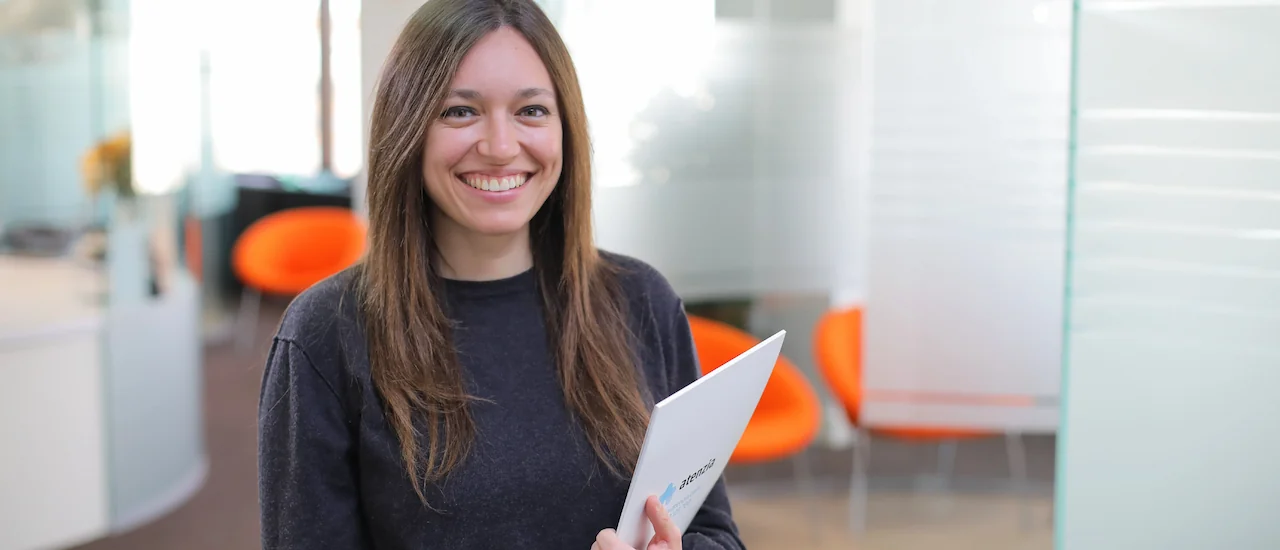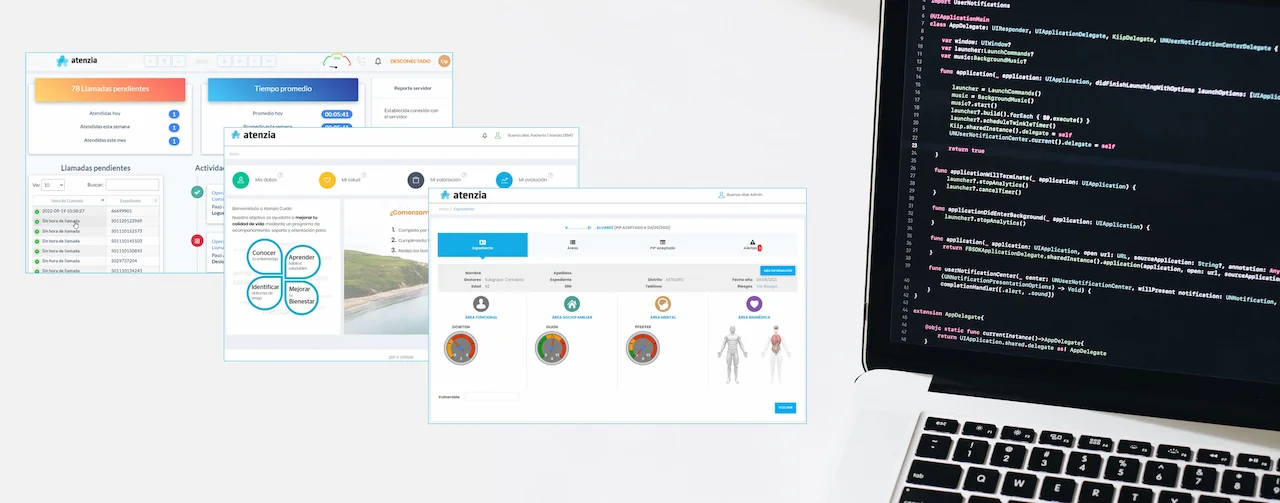360º Care

The Atenzia Model
The Atenzia Model is a care model which is continuously being adapted and improved, capable of adjusting to the specific circumstances of all groups and persons. This flexibility allows us to employ a personalised solution for each case. In addition, we have our own technological platform, Atenzia Integra, which manages the user’s information and data to design each specific action, thus generating predictive knowledge for each case.
A dynamic and evolutionary model adapted to each user
Registration
We create a personalised dossier for each user in line with their previously defined and confirmed needs. Using this data, we carry out an initial analysis of the situation: identification and positioning of each user and their socio-familial environment, along with the infrastructures, equipment, and devices available or needed. This is an essential process to organise the database to which advanced analytics will be applied (Big Data).


Evaluation
We undertake a comprehensive evaluation of each person through clinical tests focused on examining their situation in the different areas of wellbeing.
- • Physical area: mobility, illnesses, nutrition...
- • Social area: environment, support network, family situation...
- • Mental area: stress, depression, anxiety...
These tests are standardised evaluation tools and provide scientific evidence which allows us to reliably identify areas for improvement, establish the final goals and track the evolution of each person.
Intervention
We empower each user by emphasising the leading role they play in improving their wellbeing. Our professionals agree on short-term reasonable goals with the user, carry out the intervention and monitor their evolution.
Regular contact with the user allows us to obtain progress indicators and adapt the Intervention Plan to the changes produced by their physical, social or mental situation.
Each evaluation area has different technical programmes to treat in-depth the specific cases for improvement identified previously in the clinical tests.

The key to intervention: Technical programmes
The programmes respond to the specific needs identified in the initial diagnostic stage of the situation and to others which may arise during the process of intervention. Their thematic diversity and the possibility of simultaneously applying other programmes, to meet each user’s needs, allows us to provide very precise care for each case. The themes are organised into 3 areas as established by the WHO to define people’s health:

Functional Area
Falls Programme, Sensory Deficiency Programme, Programme to Prevent Malnutrition, Health-measurement Programme with biomedical constants.

Mental Area
Mental Health Programme, Cognitive Decline Programme, Programme of Care for Victims of Violence or Abuse, Grief Programme.

Social Area
Active Aging/Community Participation Programme (specific socio-cultural activation), Loneliness Programme, Carers Programme
The assignment of one or more programmes for the same case is made on the basis of an individualised and multidimensional analysis and assessment that identifies the specific needs of each person. The aim is to achieve the maximum wellbeing possible with the minimum effort for each user, thus avoiding situations of risk or frustration for them. We revise, update and create new programmes which include current social realities to keep us always at the forefront of health and social care services. A multidisciplinary team formed of experts in Occupational Therapy, Psychology, Physiotherapy, Medicine, Nursing and Social Work, among others, are responsible for both the applied programmes and the focused tracking.
Atenzia Integra Platform: Internally managed software

Atenzia Integra is a smart platform for the management of care processes which digitises all processes linked to each action Plan and its specific services. It connects all devices and interacts with any telecommunication technology. This two-way recording of all interactions, the continuous collection of data and the application of analytical tools makes it possible to define, prevent and anticipate precisely the type of care required by each individual.
The platform is in a constant process of evolution, allowing the easy incorporation of new features responding to both the needs of our professional teams and the specific needs of the bodies for which we work.
Nuestra huella positiva
Descubre cómo generamos valor para nuestros clientes en proyectos de teleasistencia, telesalud, nuevos seniors y violencia de género.
CASOS DE ÉXITO
Implementation of a programme for treatment adherence of people diagnosed with NCDs and their families. Over 90% of patients maintained or improved their psychosocial risk classification.

Telecare has evolved from being limited to immediate reactive care to a predictive, preventive and comprehensive model of care.
What new challenges await you?
Just leave us your details and one of our experts will contact you so we can see how to help you.